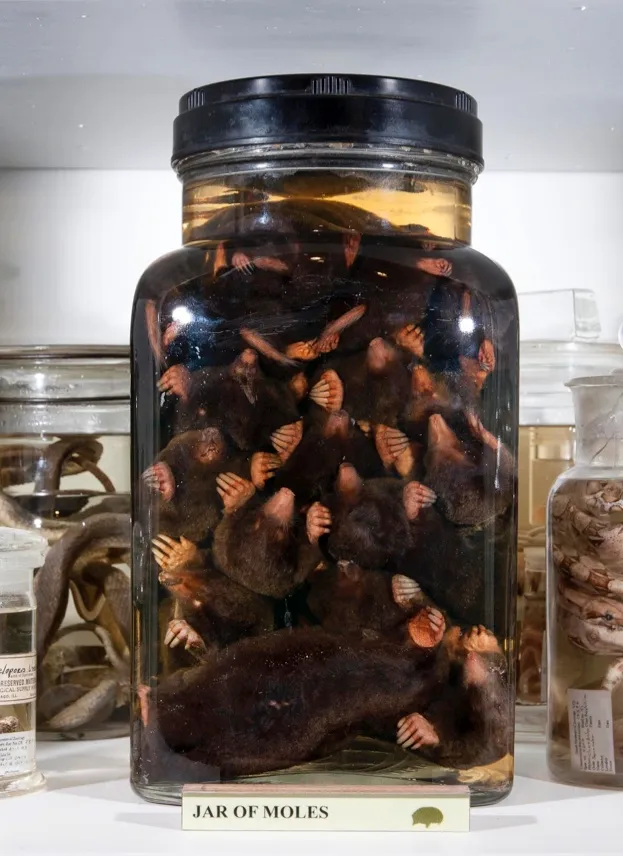The Grant Museum of Zoology, part of the University College of London, will be restoring its historic taxidermy collection.
During this time, toy stuffed animals will sit in the place of the specimens being restored, thus the project has been named Fluff it Up: Make Taxidermy Great Again.
“Taxidermy in museums plays an important role in engaging people with the natural world and its incredible biodiversity.” said Jack Ashby, manager of the museum. “This project will allow us to protect our incredible specimens for the long-term future.”
The museum has around 75 specimens, including platypuses, koalas, turtles and a pink fairy armadillo.

Whilst specimens are being restored, they will be replaced with fluffy toys © UCL Grant Museum of Zoology
The museum is also home to a quagga skeleton, a subspecies of zebra that has fewer stripes than other zebra, and went extinct in 1883. This is one of the rarest skeletons in the world, as there are only seven quagga skeletons in existence.
It is also well known for a rather unusual specimen – a glass jar of moles, which has its own Twitter account (and is mentioned in our July issue, on sale 5 July 2017).

The glass jar of moles at the museum © UCL Grant Museum of Zoology / Matt Clayton
One of the specimens that will be restored is a chimpanzee from 1913 that has cracks along its face.
However, not all the specimens will be repaired, as they provide important insights into the historical understanding of exotic animals.
An Australian echidna has feet that point in the wrong direction, meaning that rips have formed across the ankles. This shows us that when the echidna was mounted, people didn’t realise their feet should point backwards.
Visitors will have an opportunity to see treatments being carried out between 12 – 16 June, by conservation expert, Lucie Mascord.